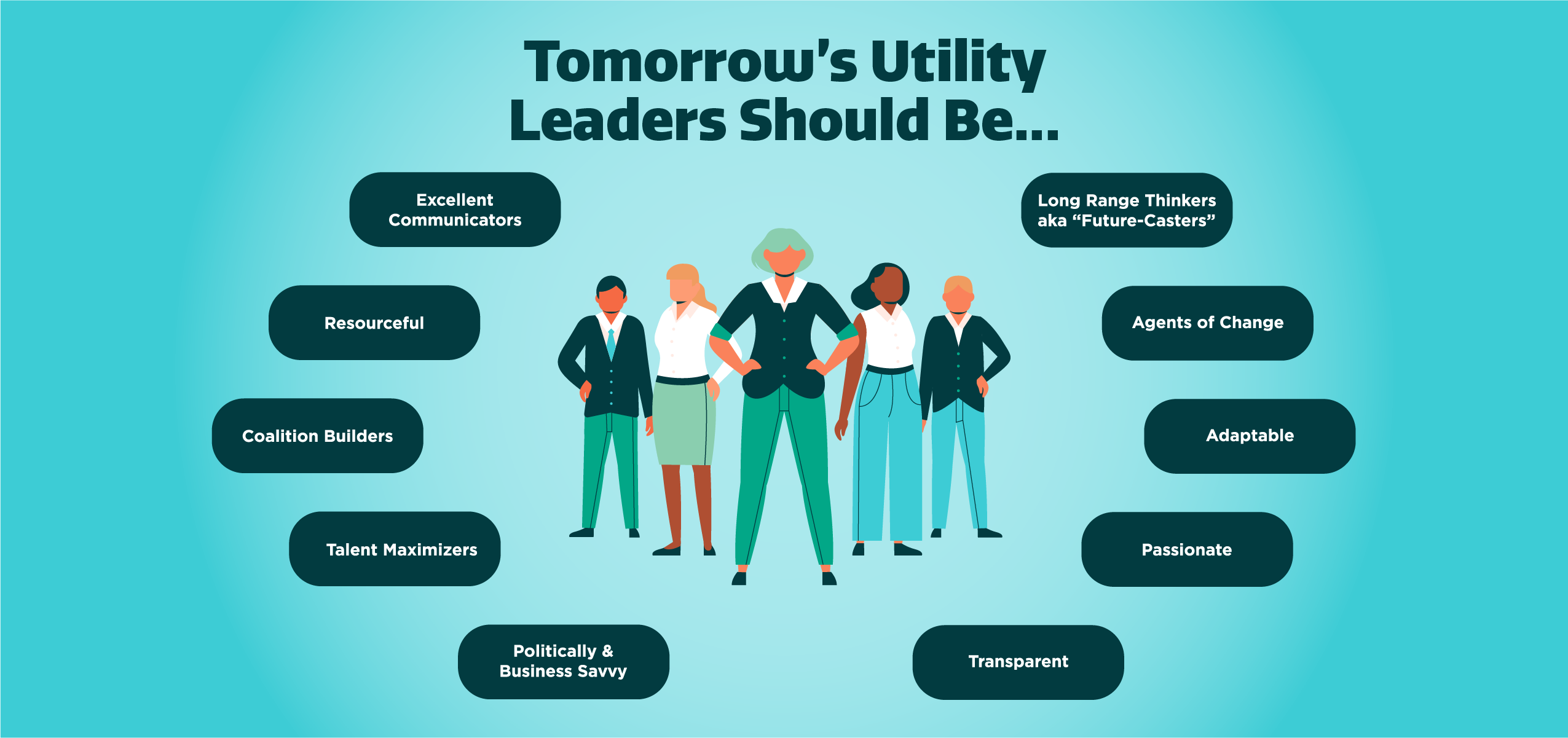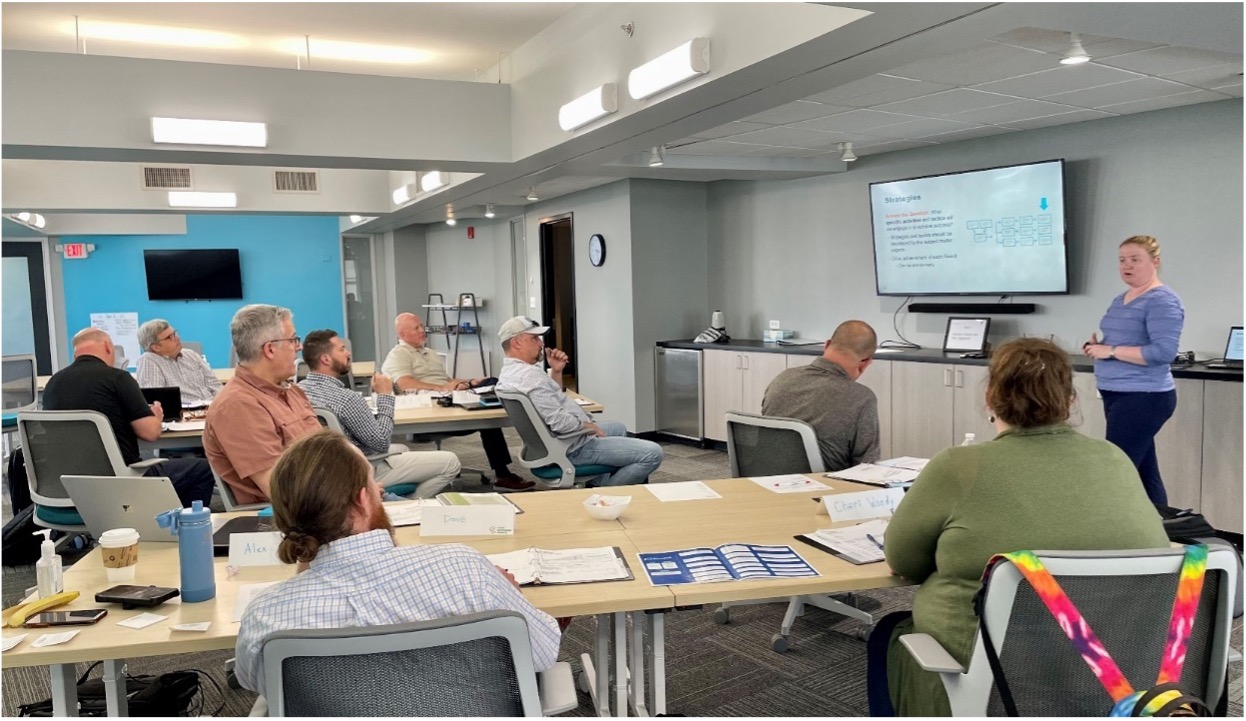
Rebekka Hosken | Raftelis

Scott Parker | Raftelis

Jennifer Teal | Raftelis
The utility industry has grown more complex and challenging. Resources are constrained, regulations have increased, the labor market is more competitive, and customer demands are high. What sets the best utility managers apart? What makes them most effective? In May 2023, Raftelis convened a cohort of utility managers for a course on Transformative Utility Management at the Raftelis Performance Academy in Cincinnati. During this training, we facilitated a discussion about what makes a utility manager effective in these challenging times – and the results might surprise you!
When most people think about utility managers, they think about technical skills: the operator licenses and certifications, the engineering degrees, the labcoats or hardhats. While a lot of a utility manager’s focus is on multi-million dollar infrastructure, the reality is – as with all types of managers – the most effective utility managers are really good at managing and leading people. Their job is far less about the technical skill and much more about building coalitions to bring the multi-million dollar projects from plan to reality. They work across diverse groups of stakeholders including board members, the management team, local residents and ratepayers, large commercial and industrial customers, local, state, and federal governments, and more. Today’s utility managers must get the most out of the best people, building a team that works most efficiently. They must be resourceful and passionate, able to encourage their teams to adapt in an ever-changing environment, empower them to make decisions, and explain the importance and value of the work being done.


The Transformative Utility Cohort at the Raftelis Performance Academy, May 2023
Finally, utility managers are planners and long-range thinkers. This allows them to create a plan and then use the communication and leadership talents noted earlier to lead their team and stakeholders to enact the changes needed to meet those future challenges. They cannot completely focus on the “today” but, instead, must be constantly looking toward the horizon to see the technical, political and service changes that will arise and plan accordingly. They are “future-casters,” able to forecast and plan toward the future and implement the changes necessary to meet the demands of the moment. Not only does this require technical skill to analyze and make accurate projections about the future, but the ability to communicate the necessary change, secure any necessary resources, and motivate the team to implement.
The best utility managers understand and internalize that water is a public good and recognize the importance of their role in the community they serve. They work to continuously improve the organization of today while knowing that the future will require a different approach than the past. Not only are they skilled in the technical aspects of their job, but also have the ability to build coalitions, communicate to a variety of audiences, and plan for the long-term. The very best utility managers are leaders.
[Utility managers] are “future-casters,” able to forecast and plan toward the future and implement the changes necessary to meet the demands of the moment.